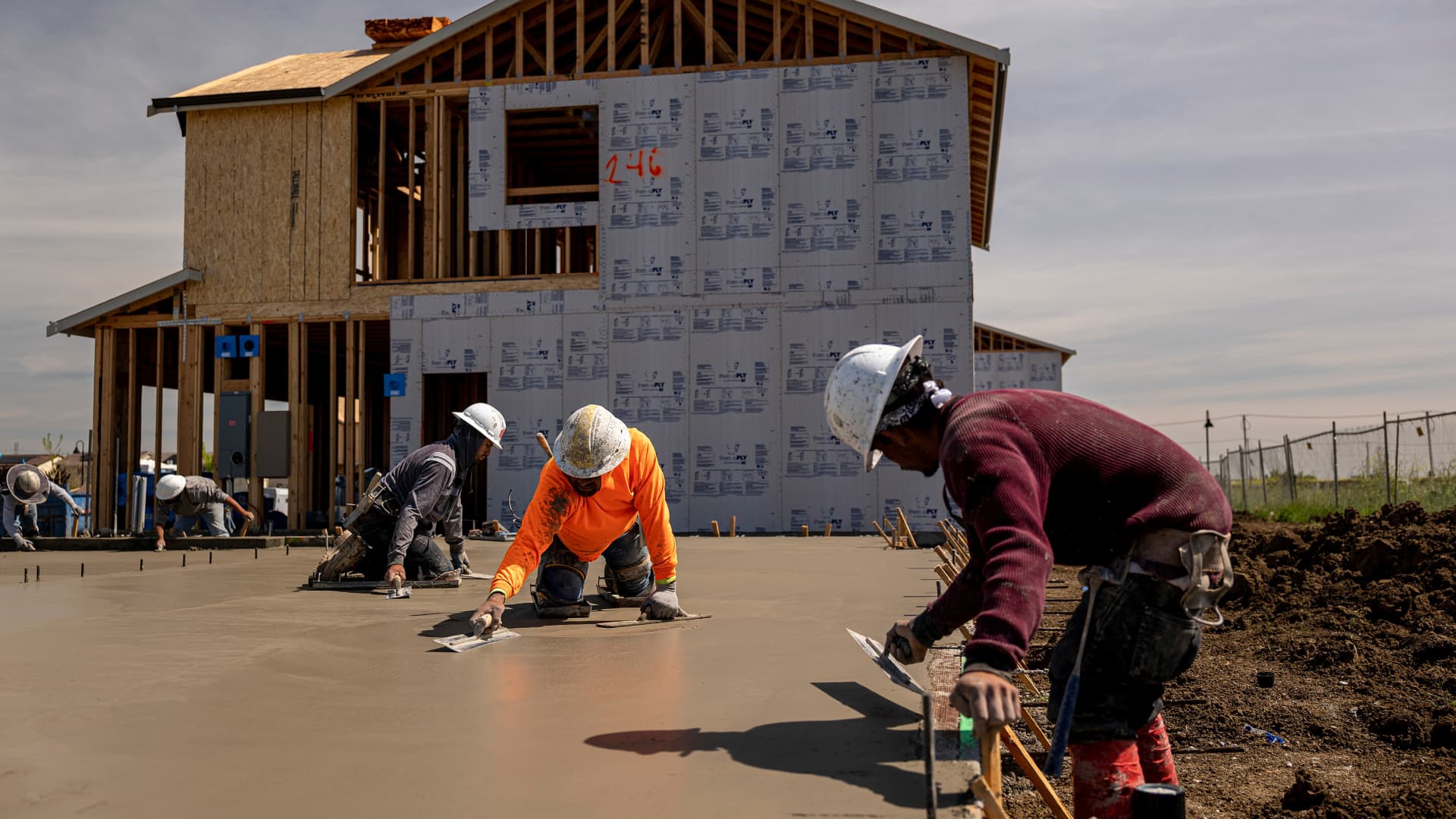The average rate on the popular 30-year fixed mortgage crossed over 7% on Tuesday, according to Mortgage News Daily. That is the highest level since early March.
Rates have been rising on a combination of concerns among investors. First, uncertainty over what the Federal Reserve will do with interest rates, given a still strong economy; second, the battle over raising the debt ceiling and the possibility of a U.S. default.
Both of those already had rates rising last week with mortgage demand pulling back. Total mortgage application volume dropped 4.6% last week, compared with the previous week, according to the Mortgage Bankers Association’s seasonally adjusted index.
Last week, the weekly average contract interest rate for 30-year fixed-rate mortgages with conforming loan balances ($726,200 or less) increased to 6.69% for loans with a 20% down payment, according to the MBA. That rate was 5.46% the same week one year ago.
Mortgage applications to purchase a home dropped 4% for the week and were 30% lower than the same week a year ago.
“Since rates have been so volatile and for-sale inventory still scarce, we have yet to see sustained growth in purchase applications,” said Joel Kan, MBA’s vice president and deputy chief economist
Applications to refinance a home loan decreased 5% from the previous week and were 44% lower than the same week one year ago. That is the lowest level in two months. Not only are there very few borrowers who could benefit from a refinance, given that rates were so much lower a year ago, but banks have been tightening lending due to recent bank failures.
Even if the debt crisis is resolved before a default, rates don’t have a lot of reason to move significantly lower any time soon.
“Credit the progressive improvement in bank sentiment, mixed but resilient economic data, and a Federal Reserve that has been steadfast in its reminders about their “higher for longer” rate mantra,” wrote Matthew Graham, chief operating officer at Mortgage News Daily.
